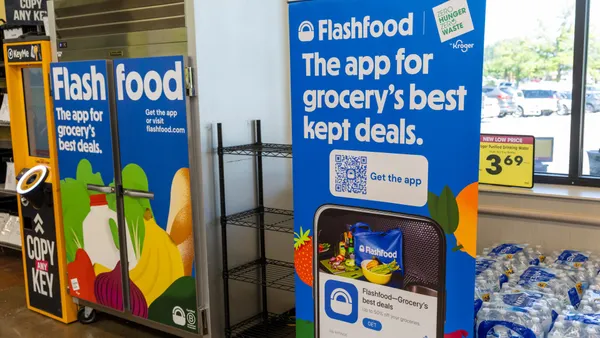Dive Brief:
- E-commerce provider Rosie has met specific criteria to ensure people with disabilities can use its online platform, the company said in an emailed press release on Thursday.
- Rosie, which serves independent grocers and wholesalers, highlighted several of its accessibility features, including compatibility with screen reader technology, a high-contrast option and the ability to shop and place orders with the use of a keyboard. Additionally, the e-commerce platform also allows shoppers to remove moving images, also known as gifs.
- Rosie said it is one of the first grocery e-commerce providers to meet Level AA of the World Wide Web Consortium's Web Content Accessibility Guidelines. The e-commerce provider also said it scored 100/100 in the Accessibility Mode and 98/100 in default mode for Lighthouse, a tool for improving web page quality.
Dive Insight:
An emphasis on accessibility is gaining traction in the grocery industry now that the pandemic has caused e-commerce adoption to leap ahead.
Approximately 61 million U.S. adults, or 26%, have some type of disability, according to the Centers for Disease Control and Prevention. Sources recently told Grocery Dive that retailers are increasingly paying attention to compliance with the Americans with Disabilities Act (ADA).
Online accessibility still remains a murky legal area. As the number of website inaccessibility lawsuits grows, grocers and e-commerce providers in recent years have faced legal action over alleged ADA violations.
In April, a federal appeals court reversed a trial court’s decision in 2017 about Winn-Dixie’s website, which was incompatible with a customer’s screen-reading software, ruling that the grocer did not violate the Americans with Disabilities Act, Ars Technica reported. Winn-Dixie has argued that ADA compliance doesn’t extend to its online shopping because its physical stores are accessible.
The 11th Circuit Appeals Court’s ruling is at odds with the Ninth Circuit Appeals Court, which determined in 2019 that Domino’s online ordering system violated the ADA because it was inaccessible to customers who are blind, according to Ars Technica.
In addition to the online space, some grocers are also looking to make their in-store shopping more accessible. For example, Trader Joe’s has teamed up with life skills app Magnusmode on virtual card decks that assist people with autism and other cognitive and intellectual disabilities with in-store shopping.











